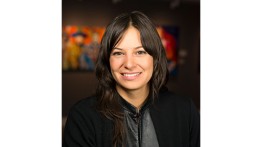Candice Hopkins | Monuments and the Wounds of History
Tuesday, February 16, 2021, 7 - 8:30pm

Photo by Jason S. Ordaz
A foot severed from the bronze monument of a conquistador. The spillage from this rupture opened up long festering colonial histories. These histories reared their heads again in 2017 when the foot suddenly reappeared, two decades after the original act. Those who cut it off wanted to speak again about the importance of telling history in its entirety and to begin conversations about reparations for those Indigenous peoples who were killed and mutilated by the conquistador Juan de Oñate. In this free, public online lecture as part of the Spring 2021 Intra-Disciplinary Seminar series Candice Hopkins considers what do colonial monuments represent now, particularly once they are removed from their pedestals?
Candice Hopkins is a citizen of Carcross/Tagish First Nation and lives in Albuquerque, New Mexico. Her writing and curatorial practice explore the intersections of history, contemporary art and indigeneity. She works as senior curator for the 2019 and 2021 editions of the Toronto Biennial of Art and was part of the curatorial team for the Canadian Pavilion of the 58th Venice Biennale, featuring the work of the media art collective Isuma. She is co-curator of notable exhibitions including Art for New Understanding: Native Voices 1950s to Now; the 2018 SITE Santa Fe biennial, Casa Tomada; documenta 14 in Athens, Greece and Kassel, Germany; Sakahàn: International Indigenous Art at the National Gallery of Canada and Close Encounters: The Next 500 Years in Winnipeg, MB. Her recent essays and presentations include “The Gilded Gaze: Wealth and Economies on the Colonial Frontier,” for the documenta 14 Reader, and “Outlawed Social Life” for South as a State of Mind.
The IDS public lecture series is part of the Robert Lehman Visiting Artist Program at The Cooper Union. We are grateful for major funding from the Robert Lehman Foundation. The IDS public lecture series is also made possible by generous support from the Open Society Foundations.




